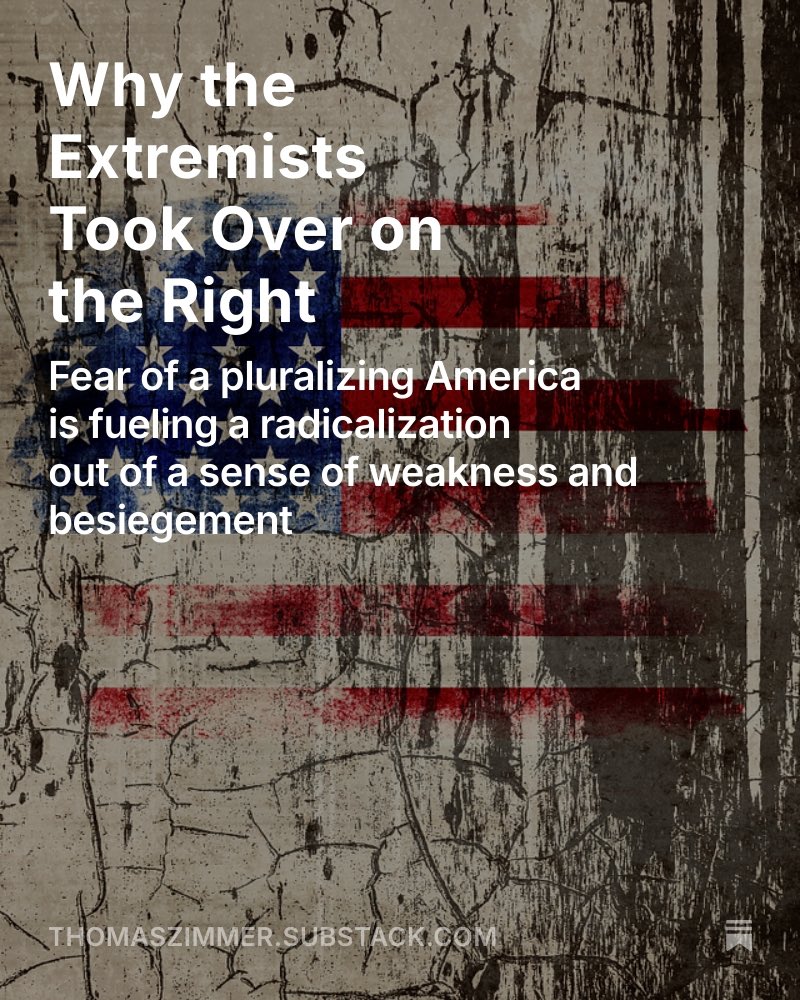I am teaching a graduate course on the “21st Century History Wars” this semester. If anybody is interested in following along here on Twitter, I’d be happy to keep a running diary of what we read and discuss. A few thoughts on the outline of the course and the idea behind it: 



Not just in the United States, but on either side of the Atlantic, we are witnessing intense conflicts over questions of cultural hegemony and national identity that have catapulted debates over “history” to the top of the political agenda.
These are struggles over who gets to define the national story and what place the legacies of racism, slavery, colonialism, and imperialism should occupy in it – with serious implications for the political, social, and cultural order in the present.
These “history wars” provide an excellent window into the broader political, social, and cultural debates that define the U.S., in particular, and the “West” more generally – they are directly tied to current conflicts over multiracial, pluralistic democracy.
We start with a deep dive into past and present history wars in the U.S.: From the fight over National History Standards in the 90s to the current flurry of reactionary education / history bills on the state level, from the 1619 Project to the conflict over Confederate monuments.
We’re also exploring the inter- and transnational context: It was the killing of George Floyd in the summer of 2020 that led to a transatlantic wave of protests, acting as catalysts for broader debates over the past and present of colonialism and racism in the UK and elsewhere.
And we’re paying special attention to Germany, where a fierce new fight over how to study, teach, and remember the Holocaust, the so-called Catechism Debate, erupted in the summer of 2021 – not coincidentally at the height of the “History Wars” elsewhere in the “West.”
These German debates are interesting from a U.S. perspective, in particular, as the idea that America should “learn from the Germans” is so widely held over here, that Germany had somehow found a more honest, more productive way of handling the “Memory of Evil.”
Just when the idea of “Learning from the Germans” has been so widely applauded in the U.S., voices in Germany have become louder calling for a critical re-assessment of the German way of “working through the past,” diagnosing some deep and disconcerting flaws.
The overall goal of this course is to gain a better understanding of the ways in which “history” shapes the present, how it influences political, social, and cultural debates, who gets to define that “history” and what role historians, politicians, activists play in that process.
We want to examine why such conflicts over “history” come to the forefront of the political/social/cultural debate at specific moments in time, and explore them as reflections on national identity, with all the political consequences that entails.
I’ve never taught this course before, so it’s all a bit of an experiment and I am very much open to suggestions and ideas regarding readings and topics. I’m working with a fantastic group of students, and I am excited to find out where our discussions will go.
Very excited to find out that so many people are interested in following along. Wonderful. Once again: It will be an experiment. I’ll do my best to keep up over the course of the semester, outlining what we read, the issues we discuss, our main conclusions and open questions.
I think I’ll try to post an update every week, probably in the form of short, separate threads, otherwise this original thread would become unwieldy quite quickly. But I’ll always update this thread here with a link to those weekly reflections, so this can be the starting point.
The semester has already started, we are three weeks in - so as soon as I find the time, I’ll post an update on what we’ve been reading and discussing so far, before we’re set to revisit the 1619 Project next week. Excited to hear everybody’s thoughts and ideas!
People are suggesting a hashtag would be helpful, which I think makes sense. I’ll be using #GEST535 - simply because that’s the course’s official designation.
Also, a sincere apology in advance: It will be impossible to answer everyone’s questions or react to all the comments.
Also, a sincere apology in advance: It will be impossible to answer everyone’s questions or react to all the comments.
Finally, a warning: In addition to updates on the course, expect lots of U.S. politics and history. I focus on democracy and its discontents, and that’s obviously an acutely contested issue. I also write columns for @GuardianUS, if you’re interested. Here’s the latest:
https://twitter.com/GdnUSopinion/status/1488836354708365313
The 21st-Century History Wars #GEST535
I’ve posted the course outline, reading list, and some additional thoughts in this thread here:
I’ve posted the course outline, reading list, and some additional thoughts in this thread here:
https://twitter.com/tzimmer_history/status/1489647952620576770
The 21st-Century History Wars #GEST535
Here’s the recap of Week 2: A look at some big-picture takes on the History Wars, and a discussion centered around how nationalist regimes deploy “memory laws” and whether American Liberals have abandoned the idea of progress in history.
Here’s the recap of Week 2: A look at some big-picture takes on the History Wars, and a discussion centered around how nationalist regimes deploy “memory laws” and whether American Liberals have abandoned the idea of progress in history.
https://twitter.com/tzimmer_history/status/1491081687744528385
The 21st-Century History Wars #GEST535
Here’s the recap of Week 3: An attempt to contextualize the conflict over history education - and a reflection on “patriotic” visions of history and the project of creating national unity.
Here’s the recap of Week 3: An attempt to contextualize the conflict over history education - and a reflection on “patriotic” visions of history and the project of creating national unity.
https://twitter.com/tzimmer_history/status/1491184680930275328
• • •
Missing some Tweet in this thread? You can try to
force a refresh






